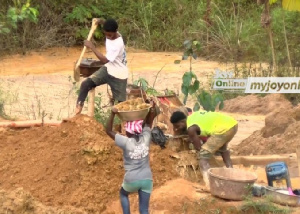- Abaare Reports
- Addi Kujay
- AfricaCNNnews
- Afriyie Kwaku Boachie
- AHAFO
- Alby News Ghana
- ASHANTI
- BONO EAST
- BRONG AHAFO
- Canard Afriq
- Cash In Trash
- CENTRAL
- Cherries
- Club Mate
- Courageous World
- Crest City News
- Current Affairs
- Daily Biz
- DailySpot
- Daniel Kaku
- Da Spicy News
- DC KWAME KWAKYE
- EASTERN
- EBI
- Facts Check
- Gabs Feed
- Ghana News Timeline
- Ghana News Update
- Godblessed1
- GREATER ACCRA
- Great Okocha
- Harry Graphic
- iNews
- Info News Ghana
- King B
- Kofipedia
- Lovely
- Managing GH
- Man Zekay
- Mart News Empire
- Maxkaytheblogger
- Mohammed Zakwan
- MyDailyNews
- Nana Kay News
- News Hub GH
- News Today
- News Zone 360
- Nine 9
- NORTH EAST
- NORTHERN
- ObuabaMedia
- OTI
- Priests News
- Royalnews360
- Sahara Writers
- SAVANNAH
- Simpsons Blog
- Skate News
- Smart News Ghana
- SpinnerWeb
- Teddytheblogger
- Ted News Ghana
- The news
- TheoNews
- Trending Now
- UPPER EAST
- UPPER WEST
- VOLTA
- Wadupgh
- Web Brief
- WESTERN
- WESTERN NORTH
Nana Kay News Blog of Tuesday, 30 May 2023
Source: Island Reporters
Understanding Ghana’s Land Use and Planning Laws: A guide to zoning, building permits, and environmental regulations

Ghana's rich landscape, diverse topography, climate, and natural resources make it a land of diverse laws and regulations. The Land Use and Spatial Planning Act, 2016 (Act 925), replaced the Town and Country Planning Act, 1960 (Act 64) and is governed by the Land Use and Spatial Planning Authority (LUSPA). The Act aims to ensure sustainable development of land and human settlements through a decentralized planning system. District Assemblies collaborate with development institutions to perform site and service programs for development purposes.
The Land Act 2020 (ACT 1036) regulates land ownership, recognizing public and private land. Public land is owned by the state and used for public purposes, while private land is owned by individuals or organizations for residential, commercial, or industrial purposes. These laws aim to ensure safe, sustainable, and environmentally friendly development activities in Ghana. Land ownership is a crucial aspect of land use and planning in Ghana, with the Land Act recognizing various types of land ownership, including customary, public, and state land. Zoning is a tool used by physical planning units under MMDAs to specify the appropriate use and development for a parcel of land.
In Ghana, there are five main zoning classifications: Residential Zone, Commercial Zone, Industrial Zone, Institutional Zone, and Special Development Zone. These classifications may change over time as the needs of an area change or new development opportunities arise. Green belts in Accra typically fall under the "Open Spaces and Recreational Areas" zone, which promotes healthy lifestyles, enhances quality of life, and provides ecosystem services like regulating local climate and maintaining biodiversity. The Open Spaces and Recreational Areas zone is an essential component of the zoning scheme, ensuring the preservation of local biodiversity and promoting healthy lifestyles. MMDAs assess lands' zoning status and propose re-zoning if necessary.
Developers may apply for change of use or rezoning if the development does not conform to the approved scheme. Land use plans guide development over time, and rezoning assigns land to different restrictions. Ghana requires building permits for all construction activities, issued by local government authorities, to ensure safety and compliance with building codes, zoning regulations, and environmental laws. The Local Governance Act, 2016 (Act 936) requires written permission for physical development in districts. The law mandates that individuals obtain a Development and Planning Permit (Building Permit) from the District Planning Authority before constructing a building or structure.
Building codes set minimum standards and requirements for building design, construction, and maintenance, while zoning regulations dictate land use and development. To obtain a permit, detailed plans, specifications, land ownership documents, architectural and structural drawings, a certified fire report, and an EPA permit must be submitted to the Physical Planning Department. The Local Governance Act, 2016 grants the permit under Act 936.
Business










